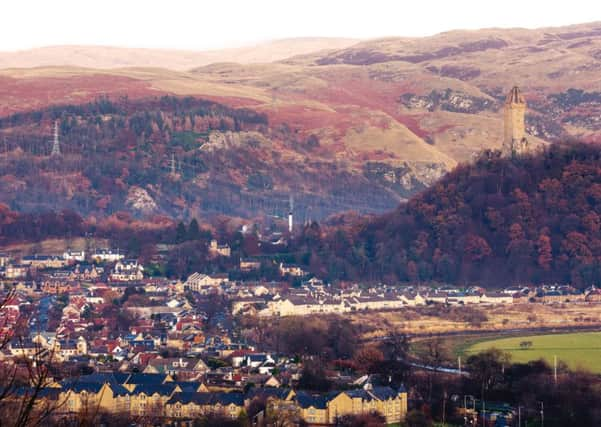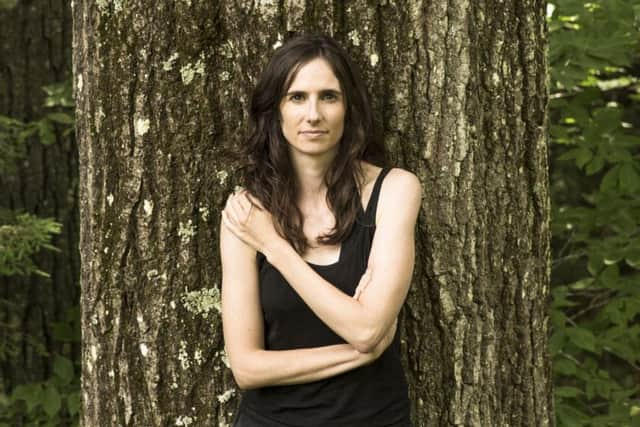Kirsty Gunn: There's more to Scotland than independence


I am reading a terrific book called Future Sex. It’s one of those “ground-shifters”, as my dear friend and colleague the late Jim Stewart used to put it, only he’d be talking about some gorgeously riveting work on Aristotle, say, or Renaissance poetics, and I’m referring to a mind-blowing account of the way young people think about bodies and desire and what happens when you take your clothes off at a party.
Jim was a scholar and poet with whom I worked at Dundee, where we both set up the writing and literature programme now in its tenth year.
Advertisement
Hide AdAdvertisement
Hide AdStudents adored him for his straightforward teaching style that was funny and scholarly and allowed for loads of questions and uncertainty, qualities that are mirrored in this book, exactly – that are all about not ever being sure, or trusting one particular viewpoint or other – and it’s been making me think how important those qualities are.


Emily Witt is interested in not being sure for a living.
She’s already had some of this book published in journals and papers – writing as she does out of that American tradition of what they called back in the seventies “New Journalism”, a kind of walking-the-talk sort of writing that involved complete immersion in the subject under review.
So, “ground shifter” all right. For sure the earth moves in a whole lot more ways in Future Sex than it did when Carole King sang about it on Tapestry. In Witt’s world it happens online, mostly, via pornography, or web-camming or internet dating, or in a range of curiously abstract get-togethers that involve interesting clothes and shoes – a “milky white shift” caught my eye, as did a furry jerkin and pair of thick black wedgies – along with a wild panoply of recreational drugs with names that sound like they come from a sweetie shop: whip-its and foil wrapped altoid mints and whizz.
It’s such fun that you almost forget you’re reading about something as serious and important as what it is to be human in the 21st century. Only you don’t, because Witt’s writing, like Jim’s questions for our students, makes you think all the time ... and hard.


The book is a collection of essays, really.
Essays allow for uncertainty, for doubt, for feeling one’s way along a subject, and it strikes me that we are in need of essays now. Future Sex. Future Anything. Talking of those whip its, it occurs to me I’d like to see a little less of that in the SNP and a little more rebellion, actually.
Discussion. Debate.
Where are the counter-narratives, the bank bench rebels? Where are the voices other than Nicola Sturgeon’s, calling for some planning for Scotland’s future that’s based on something other than a drive for Independence?
Following the vote in Westminster that’s going to trigger a swift and brutal exit from the European Union, and registering our national position in that context, rigorously opposed to Brexit from the start, it seems now more than ever’s the time for asking questions, pursuing ideas ... That we’d do well to make like New Journalists ourselves, all of us, and carry out some immersive thinking before we straight away jump and make decisions – this way or that.
For my part I wouldn’t mind a few more discussions about how we shape a future based on realistic ideas of our GNP and English trade partnership that would also take account of geographical diversity, population variance and range of cultural expression that exists outside Glasgow.
Advertisement
Hide AdAdvertisement
Hide AdHave a bit more of a chat, you know, about the differences between one part of Scotland the rest – allowing for a minute or two, for starters, that this idea about the “people, as politicians north and south of the Border keep referring to us as, is a fiction.
“We’re all of us thirled to our own drill” as friend put it recently in Dundee. Scotland is made up of a whole bunch of different Scotlands, all with different priorities, and all looking to see what’s going to happen next.
In fact we’re quite “Future Scotland” up in Sutherland already. Not that anyone in central belt politics would seem to notice – but take a look at any of Alison Cameron’s terrific editorials in The Northern Times, and follow that paper’s astute record of the changes that are being effected through increased centralisation to see that in this sparsely-populated corner of the Kingdom we are having to think very carefully indeed about certain values and ideals and whether or how we should protect them.
The future threatens hard without large scale economy to protect local interests and communitites and when the only “large scale” anything – apart from the stunning scale of the landscape itself, I mean – is to the benefit of offshore energy companies and landowners shoring up tax advantage by industrialising large portions of the countryside with wind turbine developments, intensive fish farming, single species forestation and the like. One needs to plan now for a future that will protect a way of life that we love.
And Sutherland is not the West, nor the Islands, nor the Cairngorms or Caithness, it’s itself. We’re all of us different kinds of “itself”. Still, we can be future too, global and interconnected, even as we acknowledge that party politics might be intent on leaving us behind.
I had a dream the other night that I was in one of the afternoon trains coming to or from Edinburgh, and Theresa May was sitting in the aisle across from me.
She was wearing a really lovely tweed jacket. how might Emily Witt describe it, I wonder? “heathery”? – and I was about to comment on that when I remembered that I was cross with her, this prime Minister of ours, that there were conversations I’d thought we were going to have that she didn’t seem to be interested in having now.
“Why don’t you ever come to Scotland for a talk about things?” I woke up, saying to her, straight out of my dream:
“There’s so much to discuss. All over Scotland, you need to come and visit.
“It doesn’t always have to be about Independence. There’s more to us than that.”